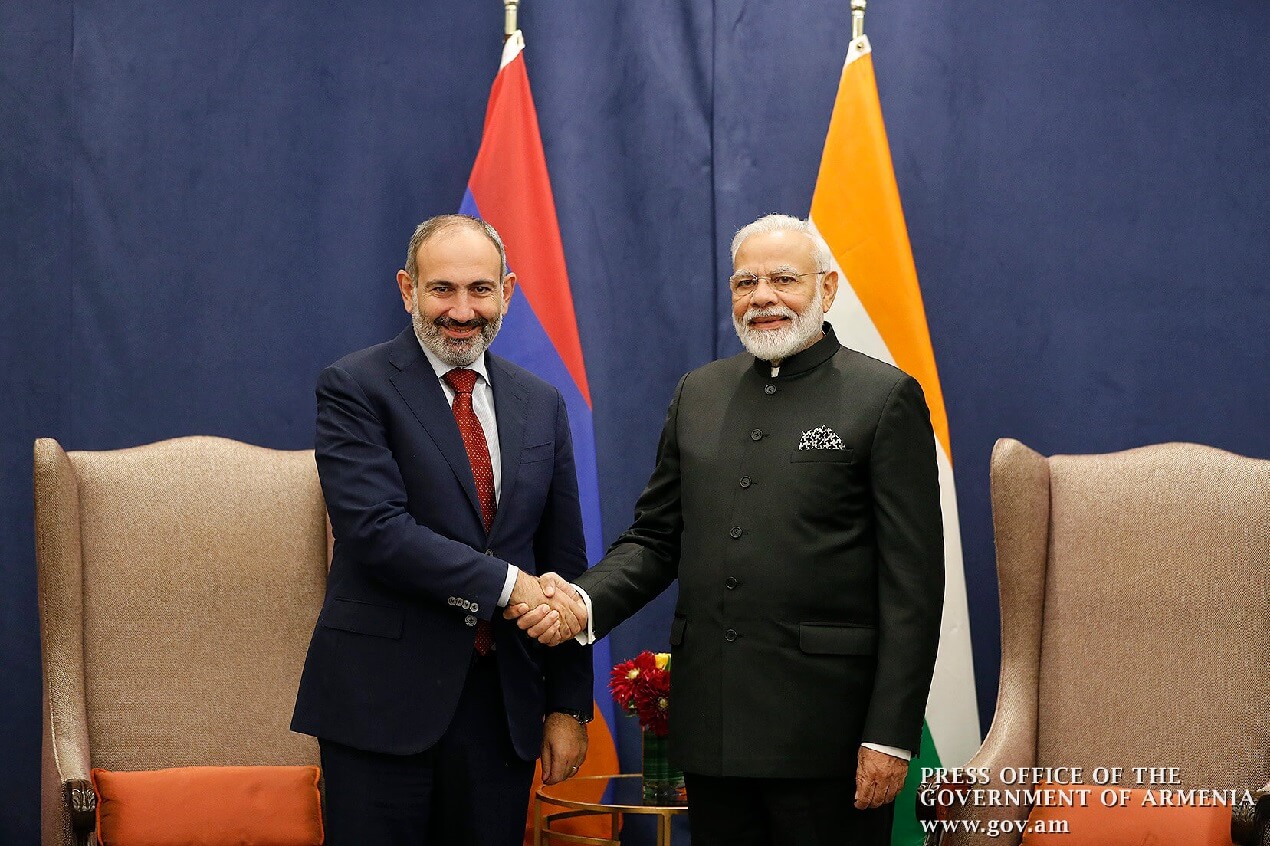As France and India have come together to arm Armenia, Azerbaijan President Ilham Aliyev has asserted that his country will not simply stand by and watch. Aliyev said that if they see the threats as serious, they will take adequate measures.
In reference to France, India, and Greece coming in aid to Armenia, the Azerbaijani President said: “We cannot sit idly by while France, India, and Greece arm Armenia against us. They are doing this openly and demonstratively, obviously trying to prove something to us in this way. We cannot just sit back with our arms folded.”
Lines have clearly been drawn as the two Caucasian countries have been engaged in a protracted conflict. Armenia has been seeking to diversify its arms imports and find new allies after Russia failed to provide the country with ordered weapons worth around US $400 million.
This has forced the country to seek other viable options for procuring its military supplies. France, India, and Greece rose to the occasion to help Armenia, while Turkey and Pakistan sided with Azerbaijan.
According to Aliyev, the Azerbaijani side made this absolutely clear to the Armenian government and “the sides which are trying to take care of Armenia.” “If we see a serious threat to us, we will have to take serious measures,” he warned.
Armenia has almost doubled its defense investments over the last year. In 2022, the spending was around US$700 million to US$800 million; now, in 2024, it will be US$1.4 billion or US $1.5 billion.
The chairman of Armenia’s parliamentary committee on defense and security affairs, Andranik Kocharyan, recently stated without naming India, that the weapons purchased by Armenia have proven to be “very satisfactory,”
France’s show of support has been preceded by Azerbaijan declaring victory after a swiftly executed military offensive in Nagorno-Karabakh, the main bone of contention and a “frozen conflict” between the two Caucasian neighbors. However, in October 2023, France promised military aid to Armenia.
Till then, France has backed Armenia only politically, but this has defined a shift in its policy in the conflict. The European country is stepping up as Russia is bogged down in Ukraine, and the peace it brokered has been shattered by Azerbaijan, which launched a military campaign in 2020.
Armenia has emerged as one of the biggest importers of Indian weapons. There have been murmurs about Armenia’s interest in the BrahMos cruise missiles and the Israeli-Indian co-developed medium-range surface-to-air missile (MRSAM).
According to France’s Ministry of the Armed Forces, a second contract was for Yerevan to acquire night vision goggles and equipment manufactured by Safran.
A report published in local French media also indicated that France could supply 50 VAB MK3 armored vehicles manufactured by Renault Trucks Defense. These vehicles provide armed forces with high-level protection and multi-mission capabilities.
Yerevan has also signed an MoU with France to purchase the Mistral short-range air defense system.
The conflict has forced the exodus of around 100,000 ethnic Armenians living in the Nagorno-Karabakh region. At the beginning of October 2023, Baku officially dissolved Nagorno-Karabakh.
India has diplomatic ties with both Azerbaijan and Armenia, which are geographically important for New Delhi’s connectivity with Russia and Europe through Central Asia and Iran.
In 2022, when India inked the deal to supply PINAKA multi-barrel rocket launchers (MBRL), anti-tank munitions, and ammunition worth US $250 million to Armenia, it was seen as New Delhi taking a position in the conflict. It was the first export of PINAKA by India.
Armenia opted for Pinaka MBRLs, considered at par with the American HIMARs, for its shoot and scoot capability. The mobility is an advantage as adversary Azerbaijan has been deploying drones, including suicide drones.

Armenia’s endorsement of the Indian position on Kashmir and support for New Delhi’s ambition to join the permanent seat in the expanded UN Security Council and Azerbaijan’s proximity to Pakistan has tilted the scales in favor of Armenia.
There have been reports that the country could acquire the Indian-built surface-to-air missile (SAM), Akash.
With its ability to engage multiple targets and destroy maneuvering targets such as unmanned aerial vehicles (UAVs), cruise missiles, and missiles launched from choppers, Akash is ideally suited for Yerevan’s requirement to combat the Turkish armed drones deployed by Baku.
India has kept most of the defense deals with the Caucasian country under wraps, but the news about them trickles in from the mandatory annual statements or the minutes of the meetings of the companies concerned. For instance, the news about Zen Technologies opening a branch office in Armenia came to light when the minutes of a board meeting held on October 28, 2023, were released.
Hyderabad-based Zen Technologies is supplying Armenia with an anti-drone system worth US $41.5 million. Zen Anti-Drone System, a Counter-Unmanned Aerial System (CUAS), is a multi-layer, multi-sensor architecture that provides comprehensive security against drone attacks.
Apart from giving repeat orders to Indian defense firms, Armenia has been looking to refurbish its Russian and Soviet weapons. Armenia is keen to modernize its military arsenal, primarily of Soviet and Russian origin. The country wants to learn how to upgrade Soviet and Russian equipment in its inventory and integrate it with the Western system.
- Ritu Sharma has been a journalist for over a decade, writing on defense, foreign affairs, and nuclear technology.
- The author can be reached at ritu.sharma (at) mail.com
- Follow EurAsian Times on Google News




